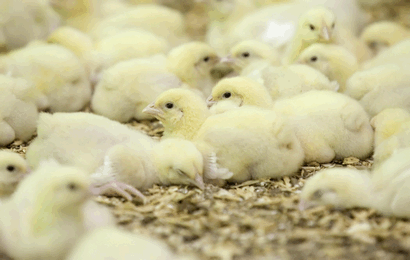New research finds no evidence of more bugs in free range than standard chicken

Scientists at Oxford University have found that the free-range environment is not a major source for the infection of chickens with a bug responsible for 340,000 cases of food poisoning in the UK every year.
Chicken meat contaminated with the bacterium Campylobacter jejuni is a major cause of food poisoning in humans.
This has led to increased biosecurity measures that attempt to limit infection of chickens in intensive, housed conditions. It had been thought that free-range chickens are more at risk because they cannot be protected from outdoor infection sources such as wild birds.

“It was widely thought that free-range chickens were likely to pick up Campylobacter from the free-range environment, particularly wild birds, but none of the evidence we have gathered supports this as a major infection source,” said Martin Maiden of Oxford University’s Department of Zoology who led the research.
“If this was the case then you would expect to see free-range chickens sharing genetically similar bacteria with local wild bird populations, but our study suggests that this is not the case.
It’s good news as it means that not being able to extend comprehensive biosecurity measures to free-range poultry is probably not the threat to human health that had been feared,” said Prof maiden.
A total of 975 chickens from 64 flocks were sampled over a period of 10 months as part of the research. Wild bird populations in the areas concerned were also studied.
The project was funded by DEFRA and the Food Standards Agency and is due to appear in the journal Environmental Microbiology.
